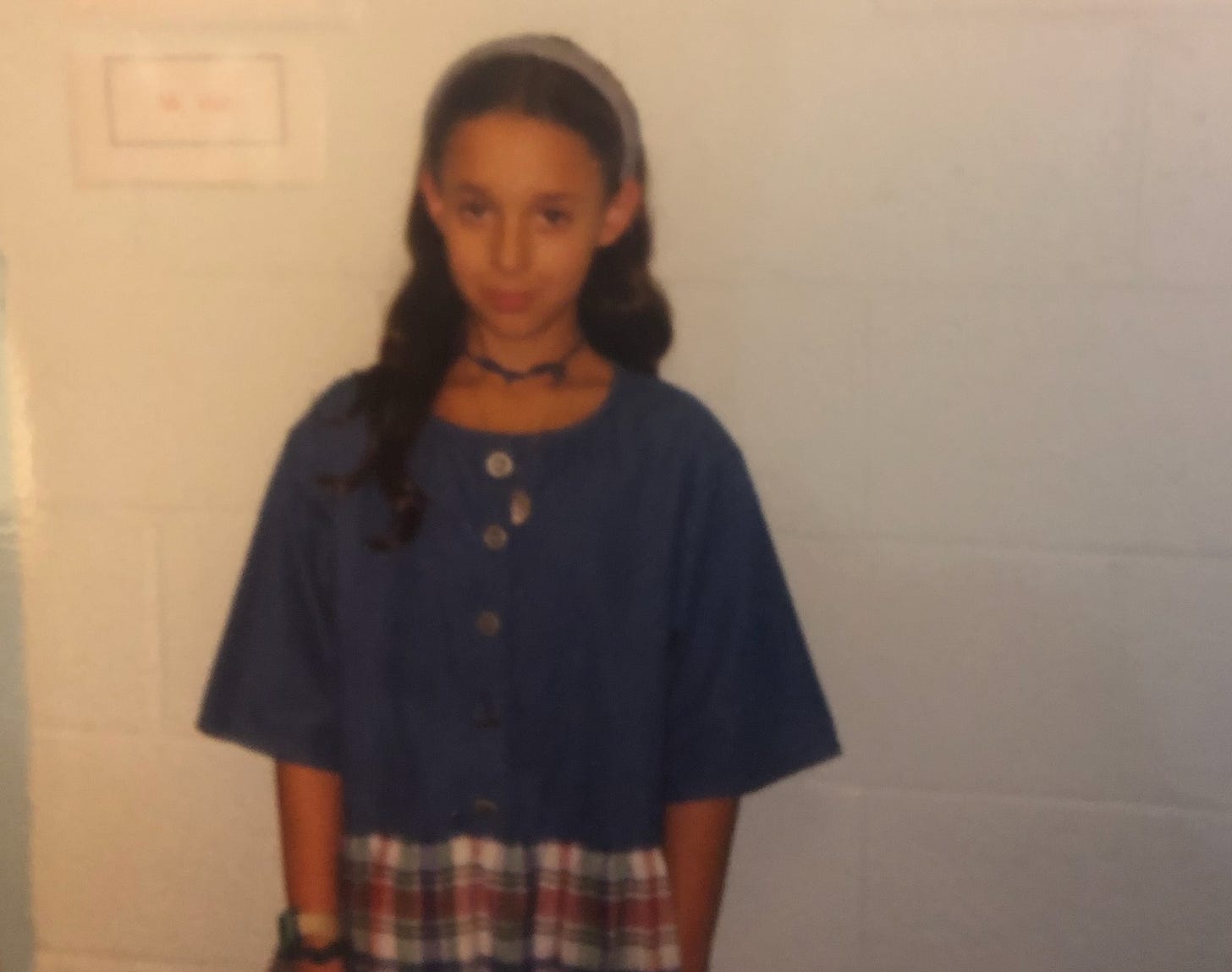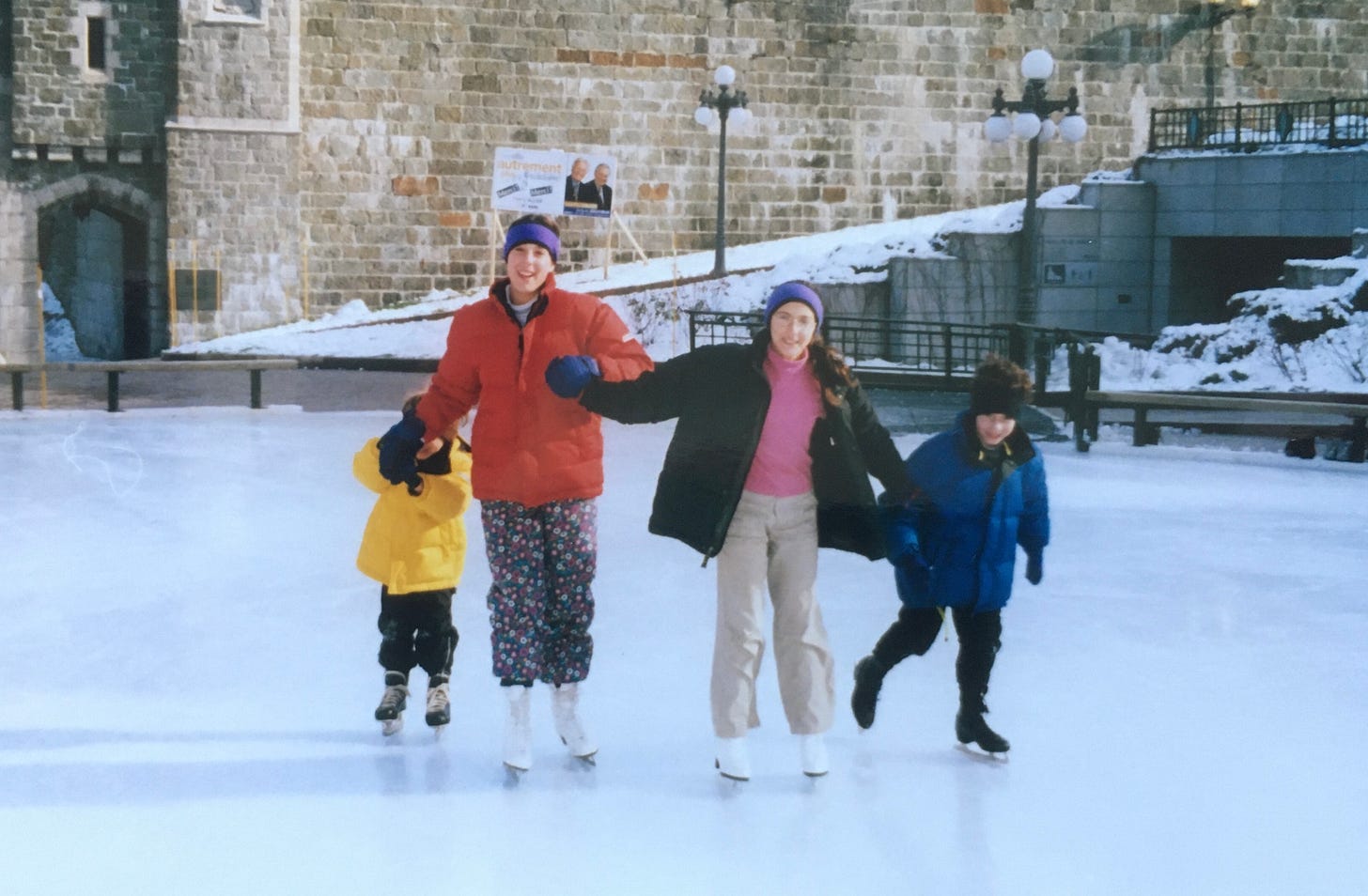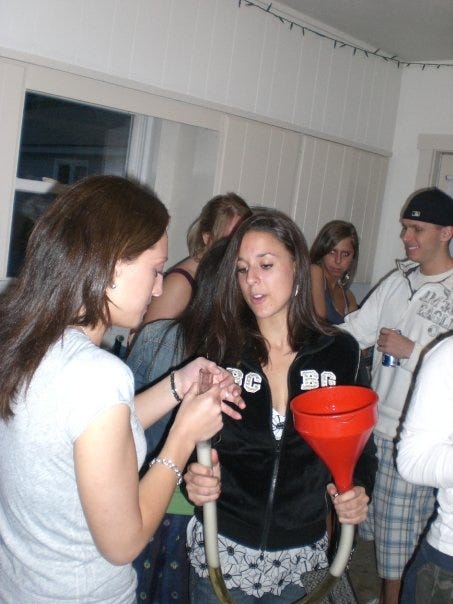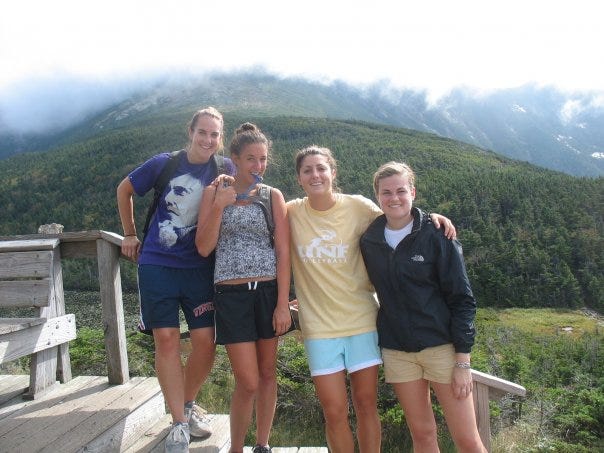A Social Study
After spending years on the sidelines with pilgrim clothes and bad hair, I went to college armed with false confidence and Juicy Couture sweatsuits, pretending to be popular until I was
Middle school and high school is a social crucible. Kids can be relentlessly cruel, and when I was in school, there was no space to stand out. Blend in with the right crowd or suffer the social consequences.
I first realized I had missed the start of a social structure in 6th grade science class. The teacher told us to break into groups, and by the time I looked up from collecting my notebook and pencil case, everyone had already dragged chairs together, having made eye contact and formed groups around me. No one asked me to join, and it dawned on me that I wasn’t part of any group. Social alliances had been forming outside of school, and I wasn’t part of it.
And then adolescence just steamrollered me. I didn’t fit in, but I couldn’t camouflage. I talked fast and I was too outspoken. I was a horse girl, but the weird kind… not the rich kind. I didn’t get good grades, so I didn’t hang out with the smart kids, but I was atrocious at sports which eliminated the option of being on a team.
Plus, at a time when individualism was nonexistent, I dressed really weird. Like, so bizarre you’d assume my family was part of some fundamentalist sect. It was a pilgrim-meets-cruise-ship combo of long plaid dresses and sandals with socks that stood out in a sea of polos and Abercrombie jeans, all of which added up to make me an easy target.
I became so accustomed to being made fun of that I started carrying a distraction with me through the halls. I’d hurry through the locker area with my eyes down, fidgeting with a water bottle, or pushing papers into a binder clutched protectively against my chest. Anything to avoid eye contact from the pods of bullies who made fun of my socks, my dresses, and whatever else stood out that day.
Having few friends left plenty of time to watch what was happening around me, and I became an observer. I saw how the upper tier of my public school classmates interacted with each other, how different their body language looked compared to mine. They sprawled against lockers and took up space—there was nothing tentative about how they moved through the hallways. They fixed each other’s hair, leaned over the table to grab food off other plates, got in each other’s space. I was so painfully hyperaware of the space I was taking up, and I wished for nothing more than the confidence to move boldly through the world.
College was my chance to start over. After years of wanting to crawl out of my own skin, I took my observations to campus with the intention of a field biologist who spent years studying a species with plans to assimilate. I knew I wasn’t truly part of the species, but if I could fool people, I had a chance at survival.
Within the first few weeks of college I had an entirely new wardrobe, trading skirts and sandals for rhinestone-studded Juicy Couture sweatsuits and a Guinness trucker hat (???) paired with fist-sized hoop earrings. I straightened my frizzy hair, plucked my eyebrows into high arches, and spent windy walks to class pulling my flattened hair out of a viscous layer of 2006 Victoria’s Secret lip gloss.
Along with blowing my budget on Dream Matte Mousse and liquid eyeliner, I altered the way I interacted with the world. I adopted body language lifted from years of observation, testing the “confident people take up space” theory in real time. I stopped walking into rooms with my arms folded, hovering near a wall until someone noticed me. I walked in and pulled a seat out, and if there were no seats, I sat on the floor. It might not seem groundbreaking, but by pretending to move through the world with confidence, people assumed I belonged.
I met a crew of 18-year-old girls with the vibe I was going for, and we sat in the cool corner of the dining hall drinking coffee with sugar-free creamer and picking at plates of iceberg lettuce. I landed coveted invites to dank frat houses basements, and was escorted to the front of the line for overcrowded parties, past dozens of shivering girls in Payless heels and polyester mini dresses.
I’d cracked the social code and created an iron-clad disguise, but I couldn’t shake the feeling of being an imposter. These girls wouldn’t have looked twice at me three months earlier—they didn’t know I was really a weird horse girl who read fantasy novels and wore dresses with socks and sandals.
The imposter syndrome wasn’t without merit. I was naive and inexperienced and I made mistakes. I didn’t know how to control my alcohol intake and got caught drinking. I ran from busted parties and bailed myself out of jail. The university threatened to kick me out of housing. I found myself embroiled in furious boy-driven drama I didn’t know how to navigate. I was assaulted. Over and over. I had so many balls in the air and I’d never learned to juggle.
I remember being at some party, the air filled with sweat-and-booze smell of my beer pong partner as he leaned into my shoulder.
“I bet you were a mean girl in high school,” he whispered, hot breath and sloshing beer.
I said Noooo in the way that meant Yes, yes of course I was.
“I like queen bees,” he slurred, fumbling for the zipper of my dress, and I gritted my teeth.
This is what you wanted, I reminded myself, and bared my teeth in a blank grin.
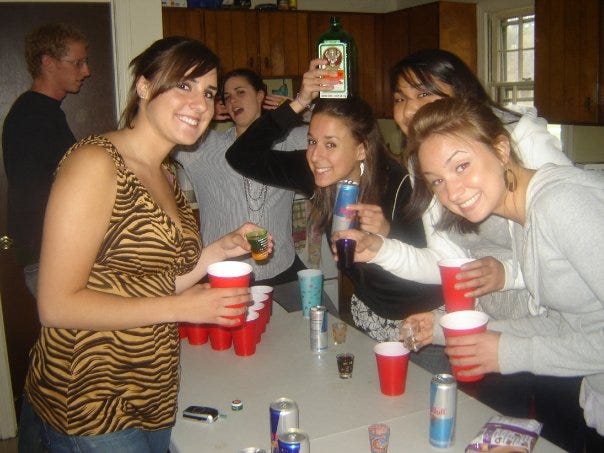
I watched myself from a distance and didn’t recognize the persona I’d created. But no matter how much I fumbled, I couldn’t risk being knocked down the social hierarchy. At the time it was all that mattered.
When I looked for pictures for this essay—most are blessedly lost to defunct Facebook accounts and old laptops—I was shocked at what I saw. Instead of a sleek young woman wearing trashy heels and maybe too much makeup, I saw a young girl roleplaying a woman. I was 18 or 19 in the pictures—I look like a baby. I’m sad for her, and I’m sad about the years I spent so desperate to be included that I lost track of who I was.
As with most phases, this one was added to the annals that make up life’s experiences, and the cool-girl-in-Uggs era is now a funny story to tell in my current world. I was shaken back to reality after a series of particularly bad events, and started working at a gym. I discovered that I liked to run, and made friends in the fitness community.
My confidence became more genuine as I graduated college and entered the real world. I moved west to continue exploring the outdoors and developed a personality that wasn’t centered around getting invited to parties and being skinny.
Even with this part of my life more than decade behind me, I still feel anxious before hosting a gathering, whether it’s a potluck or a climbing trip. I’m convinced no one is going to show up, that they’ll have figured out my persona is the remains of a 2006 facade.
Sometimes it feels like I’m back in sixth grade, sitting frozen at a science class desk watching the class split into a groups and wondering why no one asked me to join. Every phase of our lives impacts the ones after—we’re all an amalgamation of the identities we’ve worn over the years. I’ll try to remember that before my next dinner party.




